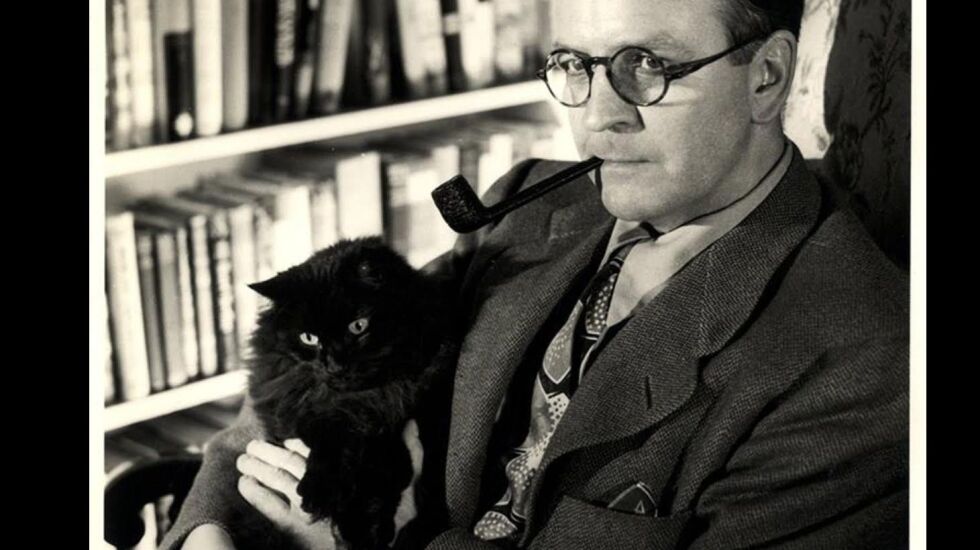
“How many summers does a little dog have?” poet Mary Oliver asks in her 2013 collection, “Dog Songs.” I usually mark lines that strike me with a Post-It note. Here there was no need. I carried it away, indelible as a tattoo.
The question, well, I almost said it haunts me. But that’s over-dramatic. The question sits there like an unwelcome visitor in a waiting room, briefcase jammed with sorrow on its knees, looking around impatiently, tapping the face of its wristwatch.
I thought of the line again recently, meeting Bella, a Bijon mix, like my Kitty. In front of the Northbrook Public Library. She was very thin and shaky and clearly not long for this world.
“How old?” I asked, the usual dogwalker’s question, freighted with more than the usual significance.
“Eighteen,” the owner, herself an older lady, replied.
Kitty is 13. So five years. Relief. And concern. How fast does five years go? Will it be more? Or less? How many summers does a little dog have?
In the past, when I thought of Kitty’s ultimate end, I sought shelter in a facile line. “I’m hoping to go before she does.” Now that seems too glib. Some pains demand anticipation. Luckily, pet owners now have a whole book to prepare and brace us: “The Book of Pet Love & Loss: Words of Comfort & Wisdom from Remarkable People,” by Sara Bader, a gorgeous volume intended to both celebrate our love of companion animals and bring solace when bereavement comes.
“How do we make sense of the desolation that sets in so quickly?” the author asks.
Here is where the conscientious journalist admits bias, and regarding Sara Bader, I am compromised, hook, line and sinker. I admired her first book, “Strange Red Cow,” wrote a column about it, and kept up with her, liking her both as a writer and a person. She runs a website, “Quotenik,” where I would tuck passages about sobriety, to ease finding them later, leading us to write a book together, “Out of the Wreck I Rise,” using snippets of poems and stories to help make the confusing whir of recovery comprehensible. We spent almost five years writing it. So no impartial review, this.
In “The Book of Pet Love & Loss,” Bader uses the close bond of writers, musicians and even a president to explain and mourn dogs and cats, birds and a variety of less conventional pets. There are capsule profiles of Robert Frost, Barack Obama, Amy Tan and others. Mary Oliver is there, and Sara mentions “Dog Songs” but not the line about summers that so moved me. “It is exceedingly short, his galloping life,” Oliver writes. “Dogs die so soon. I have my stories of that grief, no doubt many of you do also. It is almost a failure of will, a failure of love, to let them grow old — or so it feels. We would do anything to keep them with us, and to keep them young. The one gift we cannot give.”
In the years Sara was writing her latest book, I peppered her with suggestions: James Thurber’s heartbreaking “Snapshot of a Dog.” Samuel Johnson on his cat, Hoge, for whom he bought oysters.
She only used one: part of my column on the passing of our cat Gizmo, and the vastly useful advice a veterinarian gave us: “You might want to say goodbye on a good day.”

The book was published Tuesday by Simon & Schuster, so wasn’t available last month, when I needed it. A beautiful yellow lab mix named Izzy, Kitty’s best friend across the street, had been ailing for years. Now she was declining daily. Nearly blind, sometimes unable to stand. Often incontinent. Her owner would sleep on the floor in the foyer, next to her, to be nearby.
I loaned my neighbor the advance copy of the book Sara had sent. Days passed. Then she texted me that I should bring Kitty over for one last walk. It was an astoundingly normal experience. “Hey Izzy old girl,” I said, getting down on one knee and giving her a scruff and a kiss.
“The Book of Pet Love & Loss” takes you places, both light and dark. “The immediacy of the loss blows through you as if you were an abandoned farmhouse,” Jackson Galaxy writes.
“Did the book help?” I asked, when Izzy was no longer with us. “I was worried it would make things worse.”
“It did,” she said, “But then it made them better.”







